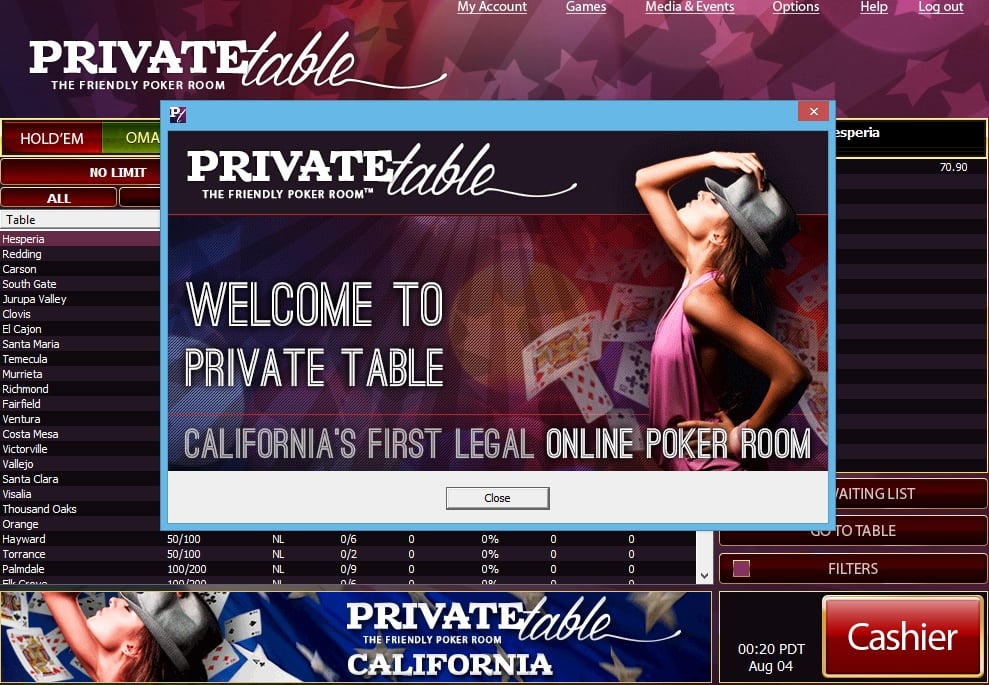Tribal Online Gaming Violates Federal Law, US District Court Judge Rules
Posted on: December 19, 2016, 05:30h.
Last updated on: December 19, 2016, 05:34h.
Tribal online gaming launched in California by the Iipay Nation of Santa Ysabel is in direct violation of federal law according to US Southern District of California Judge Anthony Battaglia.

Last week, the district judge ruled that Iipay Nation, the Santa Ysabel Gaming Commission, Santa Ysabel Interactive, and other defendants violated the Unlawful Internet Gambling Enforcement Act of 2006 (UIGEA) when it launched real money online bingo games two years ago.
In 2014, the Native American tribe launched Desert Rose Bingo, an internet destination that offered online bingo. The tribe later debuted Private Table, an internet poker room.
Both state and federal authorities quickly filed lawsuits against the sovereign tribe on claims that the websites failed to protect against patrons located physically outside of the tribal grounds from accessing the platforms. California and the US later merged their cases against the Iipay Nation, and last week Battaglia sided with their argument.
In an exhaustive 34-page ruling, Battaglia order the Iipay Nation to immediately stop offering or conducting any gambling or game of chance through internet technologies. The judge also forced the tribe to suspend accepting payments relating to online gambling from anyone outside their designated land.
The Iipay Nation is a small tribe whose land is located near San Diego.
UIGEA vs. IGRA
UIGEA made it illegal for payment processors and banks to accept deposits and withdrawals related to online betting from customers in the US. The decree essentially made it nearly impossible for Americans to gamble online.
But Native Americans argued the Indian Gaming Regulatory Act (IGRA), a federal law passed in 1988, exempts tribes from adhering to UIGEA. The Indian statute was enacted in order to protect gaming for sovereign tribes and allow them to generate revenue from casinos.
“It is beyond dispute that IGRA applies to only that which is conducted on Indian lands,” Battaglia wrote in his ruling. “But what of gaming that derives from servers located on Indian lands and utilizes the internet to reach beyond the borders of Indian country to patrons physically located within states where gambling is illegal? This is precisely the issue presented by this case.”
Two years after Desert Rose Bingo was launched, Battaglia reached his verdict that UIGEA trumps IGRA.
National Consequences
Iipay aren’t the only tribal group that has tried to launch an online wagering site in a state where internet gambling isn’t permitted. IGRA says in its legal wording that tribes may offer Class II gaming, which includes poker and bingo, on sovereign land without a compact with the state.
In April of this year, The Iowa Tribe of Oklahoma launched an online poker website and revealed plans to offer real money games in 2017 exclusively to international players. A Western District of Oklahoma judge ruled in favor of the tribe, saying there are “no genuine issues” for allowing a sovereign organization from conducting Class II online gaming to offshore customers.
The California ruling appears likely to muddy the federal government’s position on tribal online gaming.
Related News Articles
Tribe Plans to Challenge Feds on Lansing Casino
PAGCOR Auctioning Two Parcels of Land at Site of Solaire Casino
Most Popular
FTC: Casino Resort Fees Must Be Included in Upfront Hotel Rates
Genovese Capo Sentenced for Illegal Gambling on Long Island
NBA Referees Expose Sports Betting Abuse Following Steve Kerr Meltdown
UPDATE: Former Resorts World & MGM Grand Prez Loses Gaming License
Most Commented
-
UPDATE: Whiskey Pete’s Casino Near Las Vegas Closes
— December 20, 2024 — 30 Comments -
Caesars Virginia in Danville Now Accepting Hotel Room Reservations
— November 27, 2024 — 9 Comments -
UPDATE: Former Resorts World & MGM Grand Prez Loses Gaming License
— December 19, 2024 — 8 Comments -
FTC: Casino Resort Fees Must Be Included in Upfront Hotel Rates
— December 17, 2024 — 7 Comments
















Last Comment ( 1 )
“Tribal Online Gaming Violates Federal Law, US District Court Judge Rules December 19, 2016 By Samantha Beckett” is an astonishing piece of a deplorable lack of journalist curiosity regarding U.S./State citizens with “Indian ancestry/race” since The Indian Citizenship Act of 1924! That single Indian Citizenship Act of 1924, made moot all previous common law-state and federal-including Presidential Executive Orders, Commerce Clause and Treaty Clause alleged Indian Treaties (if any U.S. Senate confirmed Indian treaties actually existed pre-1924 Citizenship) regarding U.S./State citizens with “Indian ancestry/race” so often touted by politicians and Indian advocates as being legitimate law. Sadly, this federal judge adjudicated an issue turning on Title 25-INDIANS, a federal common law that is an un-ratified “IERS” and does not exist. This federal judge did not do due-diligence in first determining whether the common law at issue regarding federal Indian enactments was ratified by 1/3rd of the voters of the United States to amend the Constitution to make the health, welfare, safety and benefits of a select group of U.S./State citizens distinguishable because of their “Indian ancestry/race” thus adjudicating a court dispute turning on federal common law that does not exist. This judge’s actions are common place in both state and federal courts…judicial willful blindness to the fact a dispute at the bar turns on common law-state or federal-that does not exist. Presuming it does exist cannot be found in the Constitution…the enactment is or is not in compliance with United States Constitution Standards. And yet, MSM continue to perpetuate willful blindness to the Constitutional absurdity that Congress, Presidents/Governors, Initiatives and Referendums can make distinguishable the metes and boundaries of a select group of U.S./State citizens with “Indian ancestry/race” post citizenship. The Constitution makes for no provisions for: 1. Indian sovereign nations. None of the asserted tribes possess any of the attributes of being a ‘sovereign nation:’ a. No Constitution recognition b. No international recognition c. No fixed borders d. No military e. No currency f. No postal system 2. Treaties with its own constituency 3. Indian reservations whereby a select group of U.S./State citizens with “Indian ancestry/race” reside exclusively and to the exclusion of all others, on land-with rare exception-that is owned by the People of the United States according to federal documents readily available on-line that notes rights of ‘occupancy and use’ by these distinguished U.S./State citizens with “Indian ancestry/race” only with the land owned by the People of the United States. 4. Recognition of ‘Indian citizenship’ asserted by various tribes. There is no international recognition of “Indian citizenship” as there is no ‘nation’ from which citizenship is derived. A simple question for politicians and MSM to answer…a question so simple, it is hard: “Where is the proclamation ratified by 1/3rd of the voters of the United States that amends the Constitution to make the health, welfare, safety and benefits of a select group of U.S./State citizens distinguishable because of their “Indian ancestry/race?”